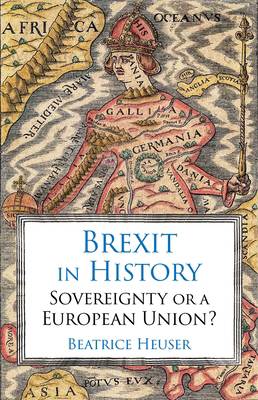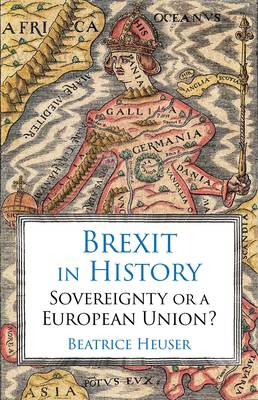
- Afhalen na 1 uur in een winkel met voorraad
- Gratis thuislevering in België vanaf € 30
- Ruim aanbod met 7 miljoen producten
- Afhalen na 1 uur in een winkel met voorraad
- Gratis thuislevering in België vanaf € 30
- Ruim aanbod met 7 miljoen producten
Zoeken
€ 48,45
+ 96 punten
Omschrijving
This is a stimulating work with an original perspective on the most important existential question in the UK since the Second World War. Rather than focusing on the minutiae of the on-going crisis, Beatrice Heuser considers Brexit in the light of the dialectic of Empire, sovereignty and co-operative syntheses throughout history. The result is an impressive synthesis of the evolution of power relationships within and between political entities.' -- Professor Michael Newman, author of Democracy, Sovereignty and the European Union Are Europeans hard-wired for conflict? Given the enmities that wracked the Greek city-states, or the Valois, Bourbons and Habsburgs, it seems undeniable. The Holy Roman Empire promised peace, but collapsed before it could deliver it, while rival rulers counter-balanced its power by stressing their own sovereign independence. Yet, since Antiquity, there has also been a yearning for the rule of law, the Pax Romana. For seven centuries, Europe's philosophers and diplomats have sought to build institutions of compromise between the unrestricted competition of nation-states and the universal monarchy of the old empires: a confederation whose representatives would meet to resolve differences. We have seen these ambitions at least partially realised in a progression of multilateral solutions: the Congress System, the League of Nations, the United Nations, and the European Union. But, with the United Kingdom's vote to leave the EU, state sovereignty seems to be pushing back against two centuries of travel in the other direction. The Brexit result shows that distrust of a "greater Europe" and fierce insistence on state sovereignty remain live issues in today's politics. To explain recent events, Beatrice Heuser charts the history and culture underpinning this age-old tension between two systems of international affairs.
Specificaties
Betrokkenen
- Auteur(s):
- Uitgeverij:
Inhoud
- Aantal bladzijden:
- 206
- Taal:
- Engels
Eigenschappen
- Productcode (EAN):
- 9781787381261
- Verschijningsdatum:
- 15/11/2019
- Uitvoering:
- Hardcover
- Formaat:
- Genaaid
- Afmetingen:
- 145 mm x 218 mm
- Gewicht:
- 385 g

Alleen bij Standaard Boekhandel
+ 96 punten op je klantenkaart van Standaard Boekhandel
Beoordelingen
We publiceren alleen reviews die voldoen aan de voorwaarden voor reviews. Bekijk onze voorwaarden voor reviews.











